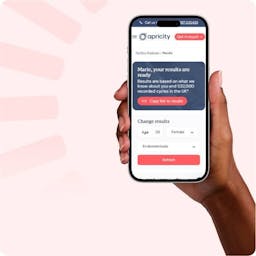Call us today on +44 7897 035438
Study into donor conceived families offers reassurance for those considering egg donation treatment
Pregnancy, birth and raising children is no easy task, and can come with a rollercoaster of emotional challenges. If you are creating your family with the help of donor eggs or sperm, you might have added worries about whether not sharing genetics can affect your ability to bond with your child, as well as wondering ‘do I have to tell my child they are donor conceived?’

Table of Contents
It is understandable that you might be wondering how close you'll be with your child and how to talk to them about their origins later on. However, whether there is a genetic connection between you and your baby or not, it is important to remember that donor-conceived children are born into their families and grow up as a part of them. The environment and how children are raised by their parents have a much bigger impact on their development than just inherited genes. You can read more on the impact of nature versus nurture on our epigenetics blog.
Research into donor-conceived families
Recent research looked at families with children born from fertility treatments like in vitro fertilisation (IVF) or intracytoplasmic sperm injection (ICSI) and followed them as they grew up. It included both donor-conceived families and families who have conceived children naturally or through fertility treatment using their own eggs and sperm. The research found that when donor-conceived children turned 20, they had just as fond and nurturing relationships with their families as children born without IVF. Likewise, the mental well-being of children who were a part of a donor-conceived family was the same as in the families who had conceived naturally or through IVF with their own eggs.
The study also discovered that telling kids about being born through donor conception at a very young age, even before they start school, can actually make families closer. In fact, the young adults who learned about being donor-conceived before they turned seven years old had warmer relationships with their birth mothers, compared to those who were told at a later stage.
Bonding with your donor conceived child
For many years, a common preconception was that donor-conceived children might be less similar to their parents and therefore have more difficult relationships and potentially a more challenging childhood. However, it was shown not to be the case. Children who are born from IVF with donor eggs have equally healthy bonds with their families.
Open and honest communication is key to building a strong relationship between parents and donor-conceived children. The study highlights the importance for parents to be transparent with their children about their origins and to provide them with information about their genetic background and medical history. This can help them develop a sense of identity, understand their place within their family and community and grow up close with family members, just like any other child.
Egg donation treatment in the UK
According to the latest information from the HFEA, using donor eggs or sperm helped create more than 4,100 babies in 2019. This means that for nearly one out of every six babies born through IVF in the UK, donors played a role in making it happen.
Donating eggs is one of the greatest gifts that one can give to somebody. For women aged between 43 and 50 years old and trying to conceive, the chances of having a baby using their own eggs are about 5%. However, for those same women going through donor egg IVF or ICSI, that chance of having a baby goes up to more than 30%.
If you are thinking of starting IVF with donor eggs, we can help you find answers to any questions you may have about finding an egg donor and donor conception. You can book a free call with one of our fertility advisors to learn more.
References
At age 20, children conceived from third-party donation enjoy well-adjusted family relationships - Focus on Reproduction, 15 April 2023
https://www.focusonreproduction.eu/article/News-in-Reproduction-Third-party-donation
HFEA - trends in egg, sperm and embryo donation

Written by Apricity Team
Helping you stay informedWritten by our group of fertility experts and doctors consultants
Written by our group of fertility experts and doctors consultants
Keep reading
Why Apricity
Preserve Fertility
Fertility Treatments
Egg Donation
Ⓒ Apricity Fertility UK Limited. All rights reserved


